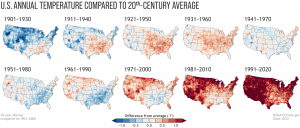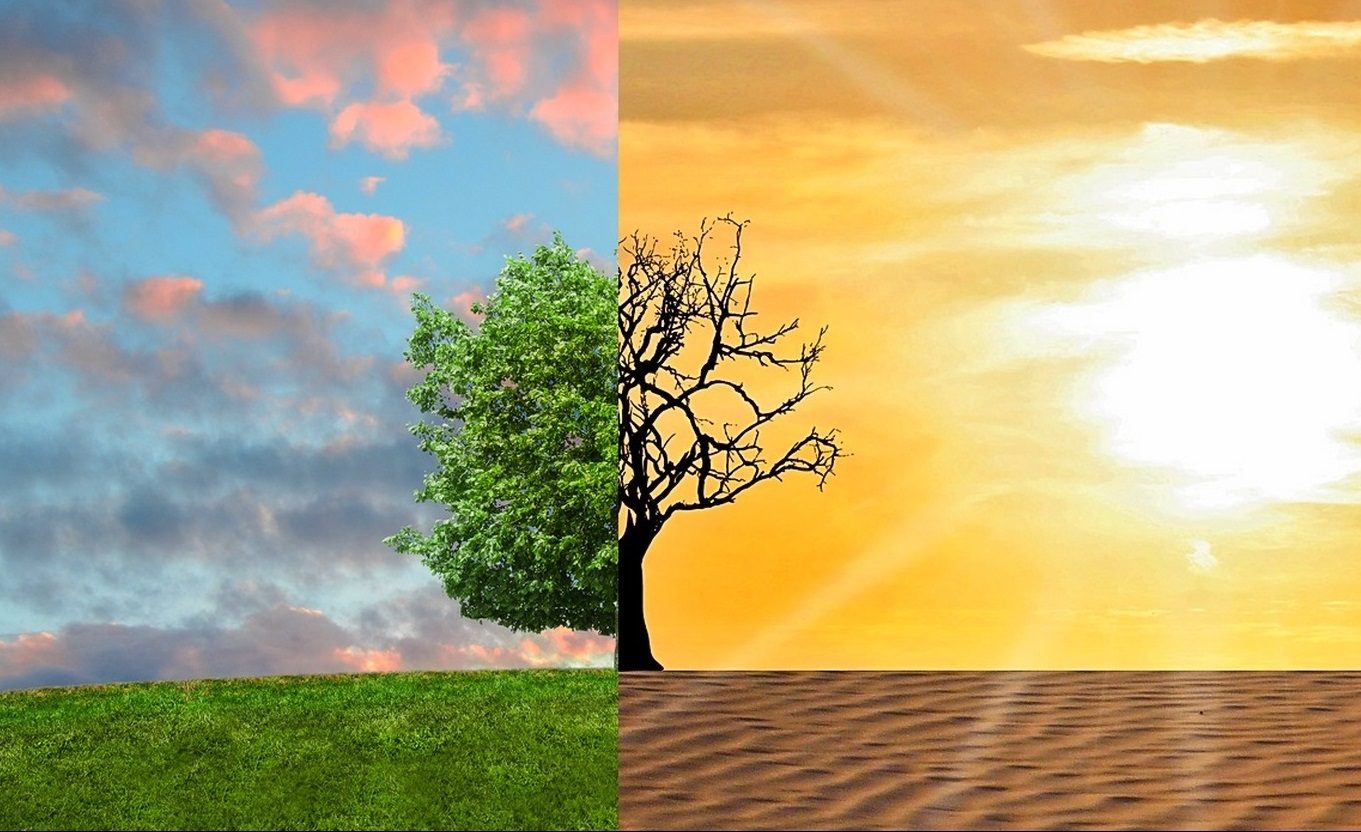Do we need individual or collective action? Is the problem overpopulation or overconsumption? The longer we argue, the less we do about it.
Ever listen to a weather report and hear that the temperature was above or below normal for a given day? Those “normal” temperatures come from a rolling thirty-year average, and last week, the National Oceanic and Atmospheric Administration (NOAA) released their long-awaited calculation of normal temperatures covering the years from 1991-2020. The “new normal” benchmarks are warmer than the previous set, adding another layer of evidence to the argument that the climate is changing and we need to adapt, pronto. But whose fault is climate change, really? Getting to the root of the problem would make solving it a whole lot easier.

There are currently two major perspectives regarding this issue. Whose fault is climate change, is it the companies who pollute, or is it the people who buy their products? It depends upon who you ask.
On one hand, companies would prefer to wash their hands of any responsibility by convincing us that consumers are at fault for making bad choices. This sentiment inspired what may be one of the sneakiest marketing campaigns ever, the “carbon footprint.” In the early aughts, oil giant BP popularized the carbon footprint as a way to foist the blame onto the people who buy and use their chief product instead of taking responsibility for cleaning up their act. Over time, however, it has become clear that individual action, no matter how virtuous, will never be enough to move the needle on one of the most important existential crises in history.
On the other hand, they’re not wrong. It’s easy to blame big companies for manufacturing products that are designed to break so we’re forced to buy another one. It’s also easy to blame other countries, like China, for emitting massive quantities of greenhouse gases, but we’re the ones who buy the cheap and breakable products they crank out in quantities so large that just one of the container ships built to carry it all got stuck in the Suez Canal. Whose fault is climate change, when we’re the ones who keep giving our money to companies who willingly look for ways to make products cheaper (so we can consume more of them) by locating factories in countries where it’s easier to pollute?
Which brings up the other climate dilemma that isn’t polite to discuss, consumption vs. population. Whose fault is climate change, is it the people who consume a wasteful fraction of the world’s limited resources, or is it the sheer number of people causing the problem?
There’s an inherent danger in claiming that population alone is the problem. Despite being largely unconvinced that anthropogenic climate change exists and is a real threat, far right political groups are more than willing to use the climate crisis as an excuse to push anti-immigrant and racist agendas. If population totals can be blamed for any evil, they will be more than happy to tell us who should be the first to die to solve it. Whose fault is climate change? Anyone they don’t believe is fully human.
That alone is a compelling reason to avoid mentioning population, but like Paul Ehrlich said, concentrating on consumption alone is like trying to measure the area of a rectangle using only its width while ignoring its length. Even at a subsistence level, multiple billions of people will have a measurable effect on global systems. Market-based solutions that ration critical commodities like food by price would disproportionately affect the poor, favoring those who already consume the most. If the only solutions available are starving the poor or expanding our racial lebensraum, is that a world worth living in?
In the end, whose fault is climate change? All of us, and none of us. It may simply be a feature of life to use every resource available until a disaster occurs which knocks us back into balance. We can wait for that to happen, although it won’t be pretty, or we can take steps, individually and collectively, to rein in both our numbers and the rate at which we foul our nest. Every moment we keep arguing about who’s at fault instead of doing something about it brings us closer to the edge. If we have the means, we have the responsibility to help. Action is needed to change the culture and enforce rational limits on those whose ideology or profit motive mean they won’t control themselves, although any such measures will be deemed tyranny. Failing that, we could simply accept the monumental smackdown coming our way, knowing that even if civilization or even human life doesn’t continue, the Earth is resilient and will eventually spawn some other critter to take our place.
Related: Stop Flying!


Join the conversation!